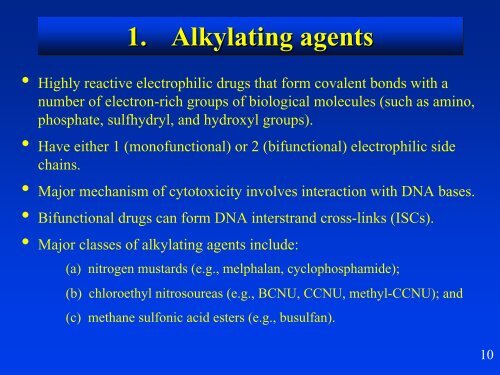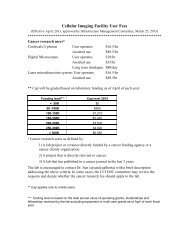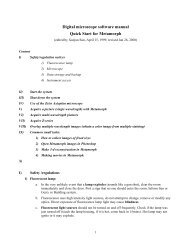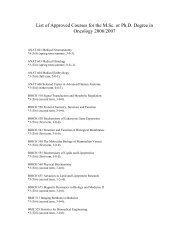Principles of Chemotherapy - Experimental Oncology Graduate Study
Principles of Chemotherapy - Experimental Oncology Graduate Study
Principles of Chemotherapy - Experimental Oncology Graduate Study
You also want an ePaper? Increase the reach of your titles
YUMPU automatically turns print PDFs into web optimized ePapers that Google loves.
1. Alkylating agents• Highly reactive electrophilic drugs that form covalent bonds with anumber <strong>of</strong> electron-rich groups <strong>of</strong> biological molecules (such as amino,phosphate, sulfhydryl, and hydroxyl groups).• Have either 1 (mon<strong>of</strong>unctional) or 2 (bifunctional) electrophilic sidechains.• Major mechanism <strong>of</strong> cytotoxicity involves interaction with DNA bases.• Bifunctional drugs can form DNA interstrand cross-links (ISCs).• Major classes <strong>of</strong> alkylating agents include:(a) nitrogen mustards (e.g., melphalan, cyclophosphamide);(b) chloroethyl nitrosoureas (e.g., BCNU, CCNU, methyl-CCNU); and(c) methane sulfonic acid esters (e.g., busulfan).10











